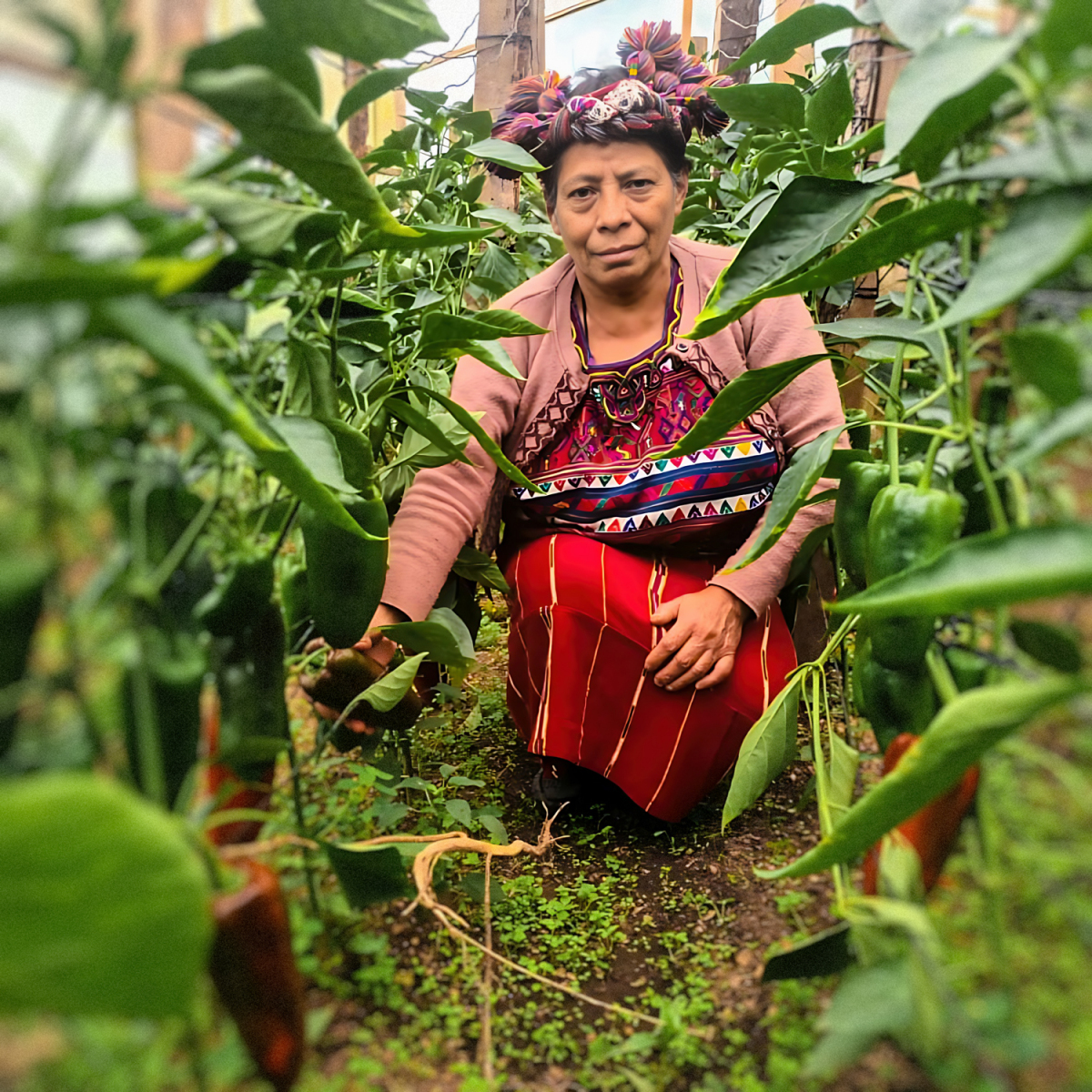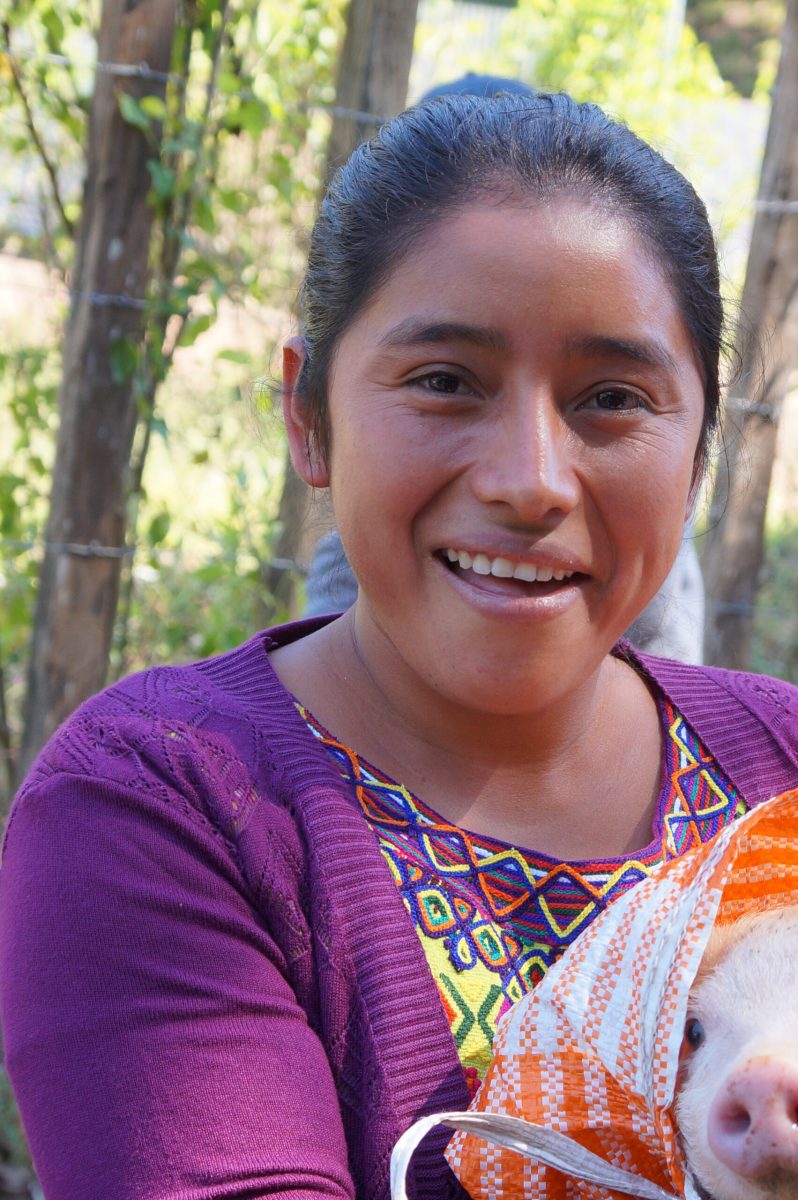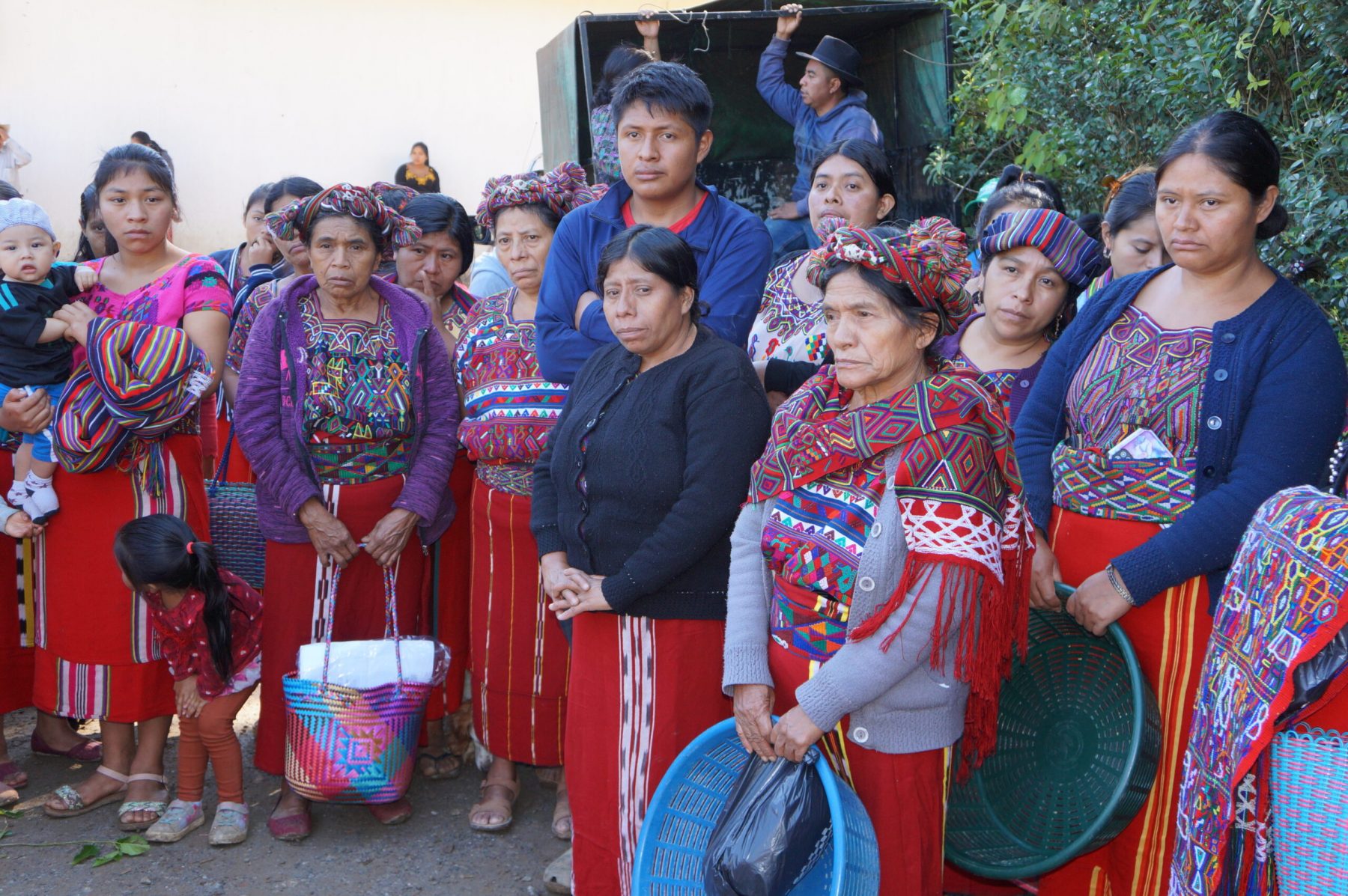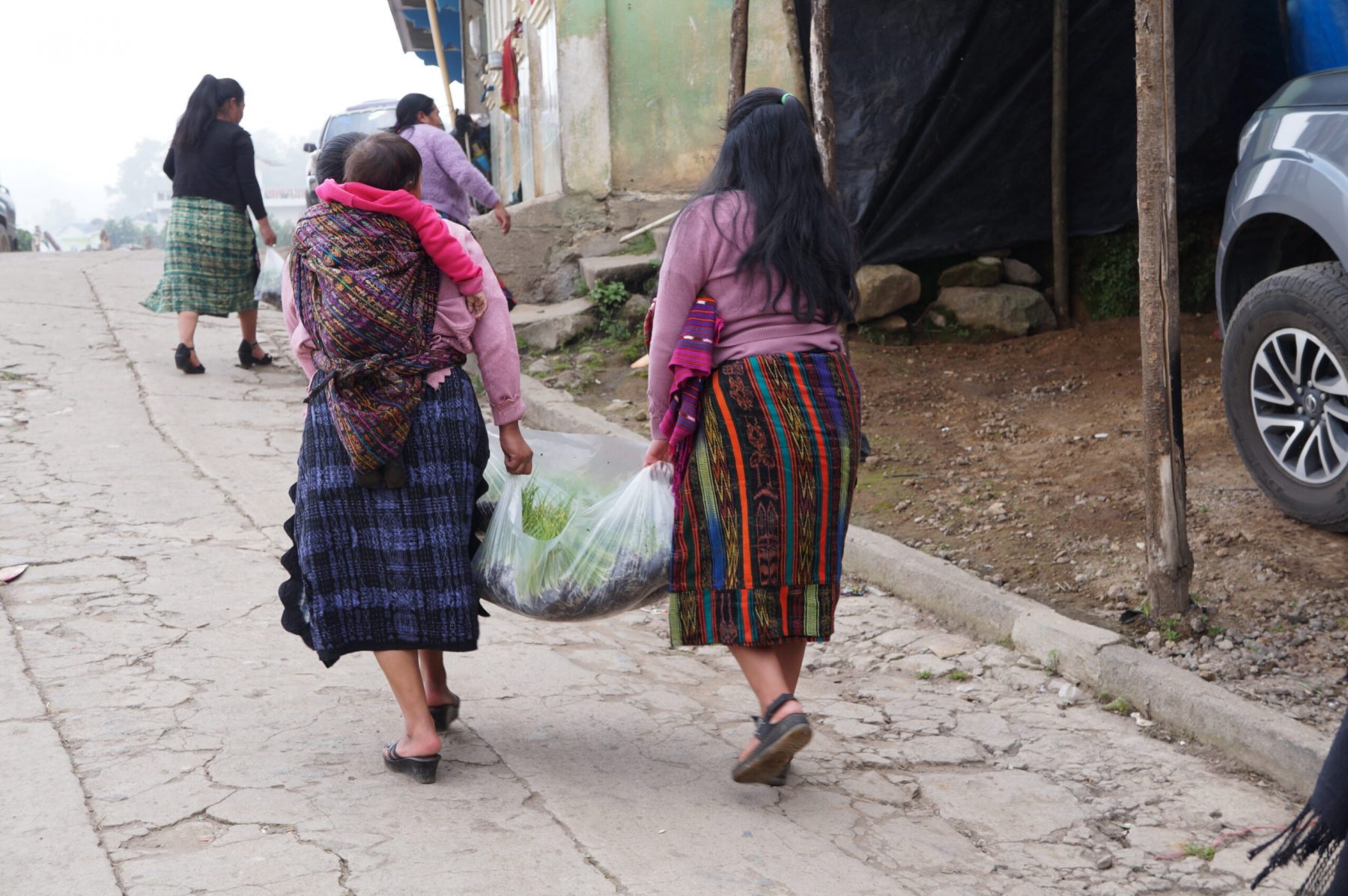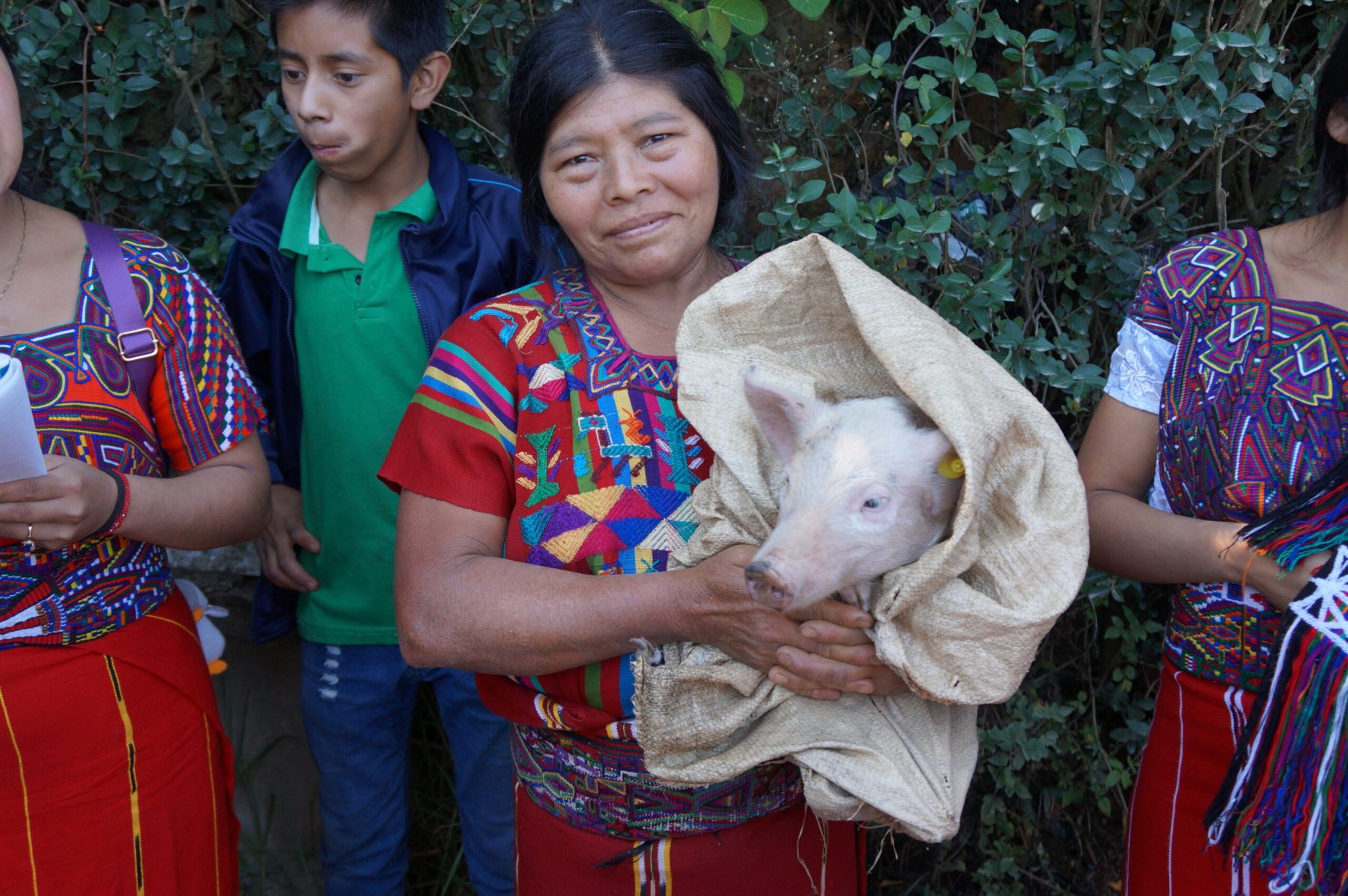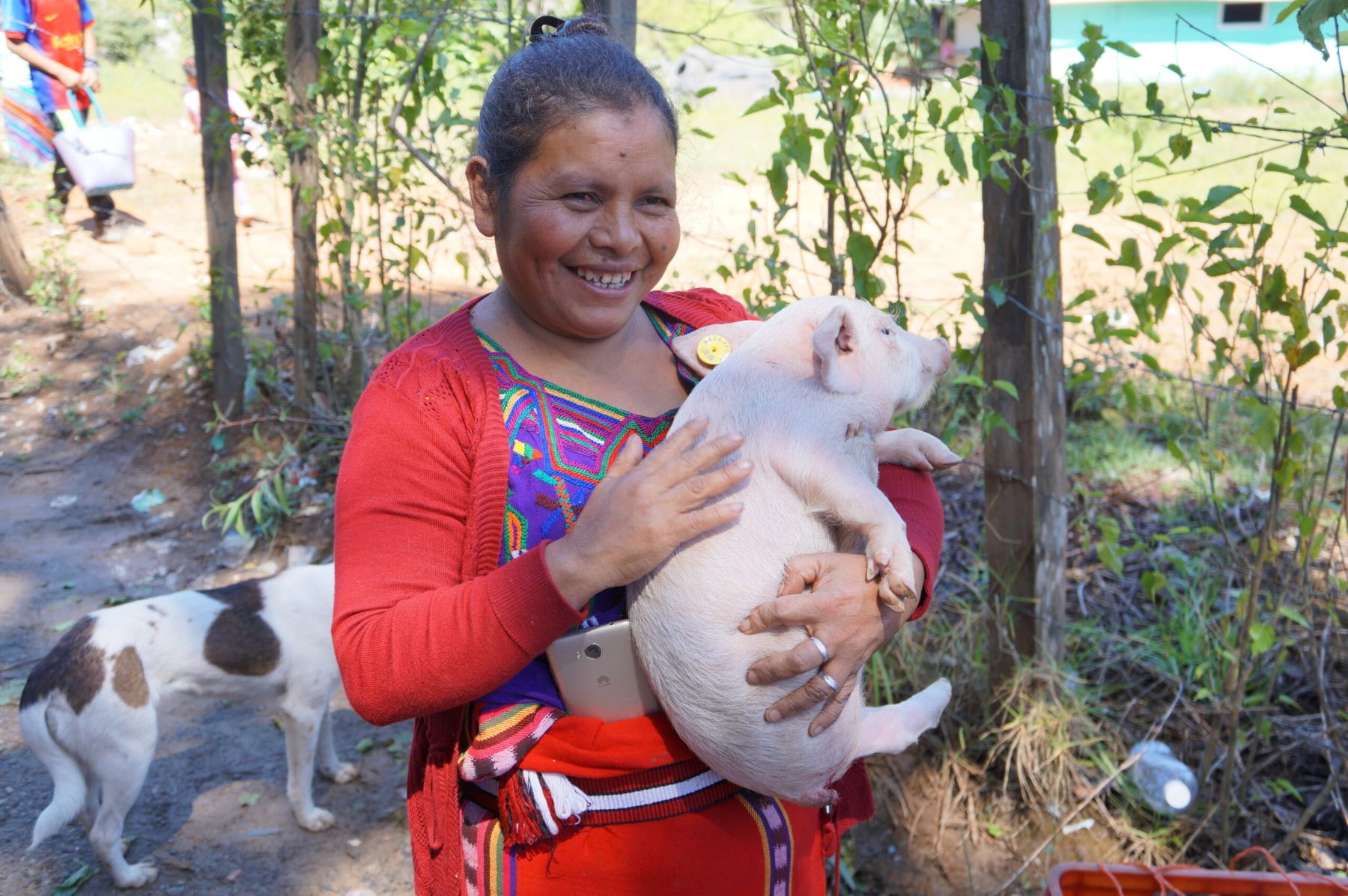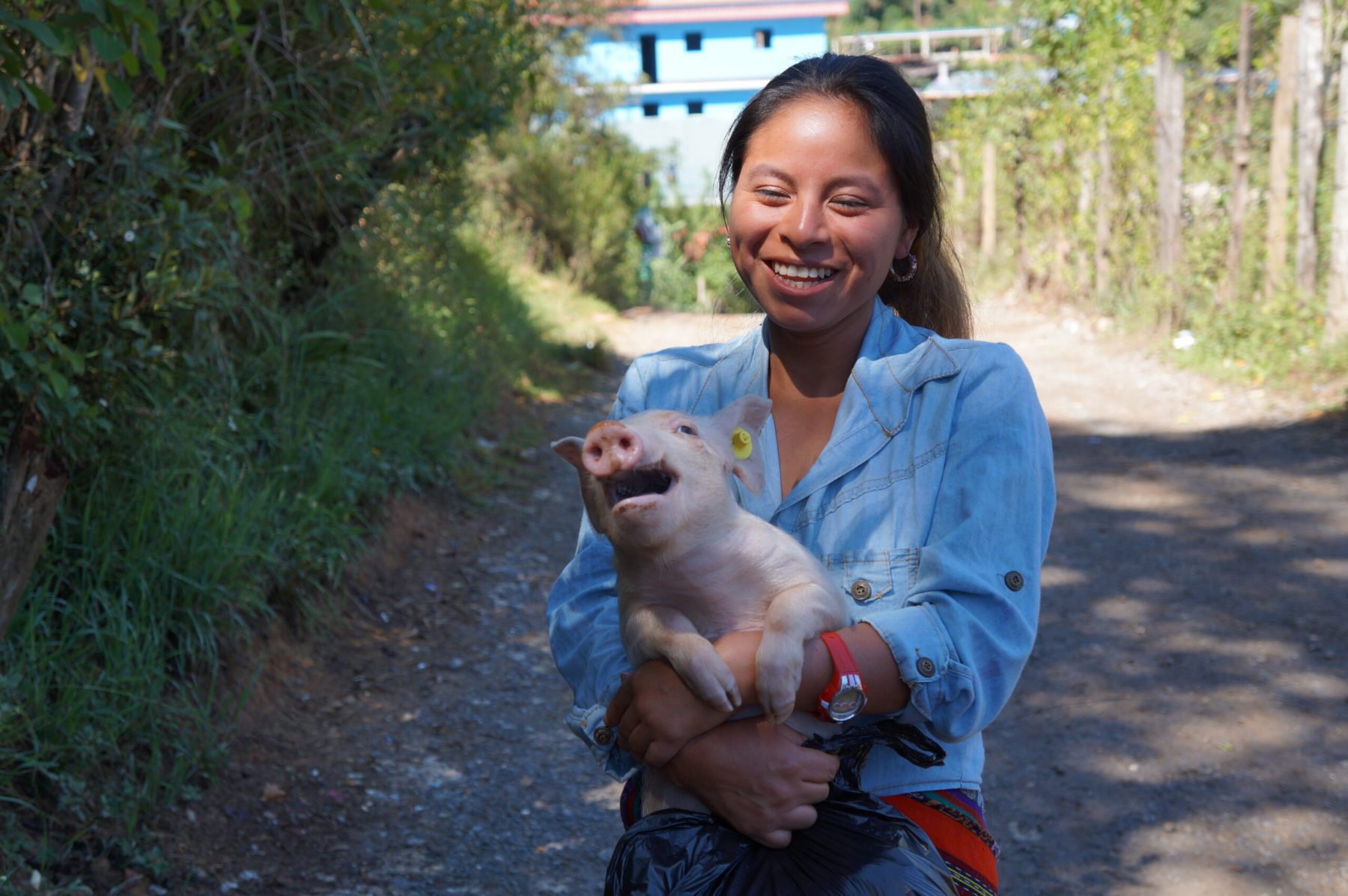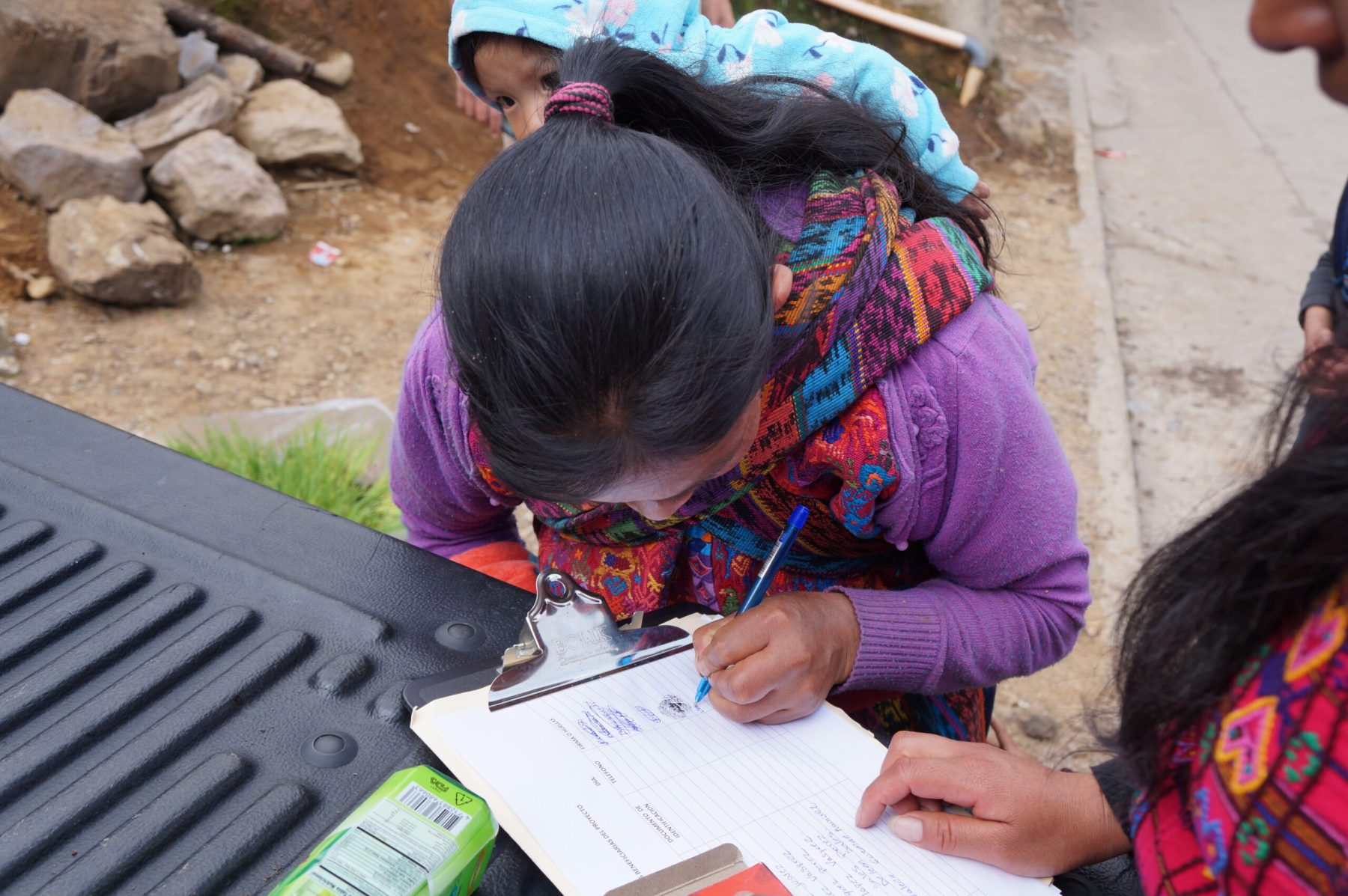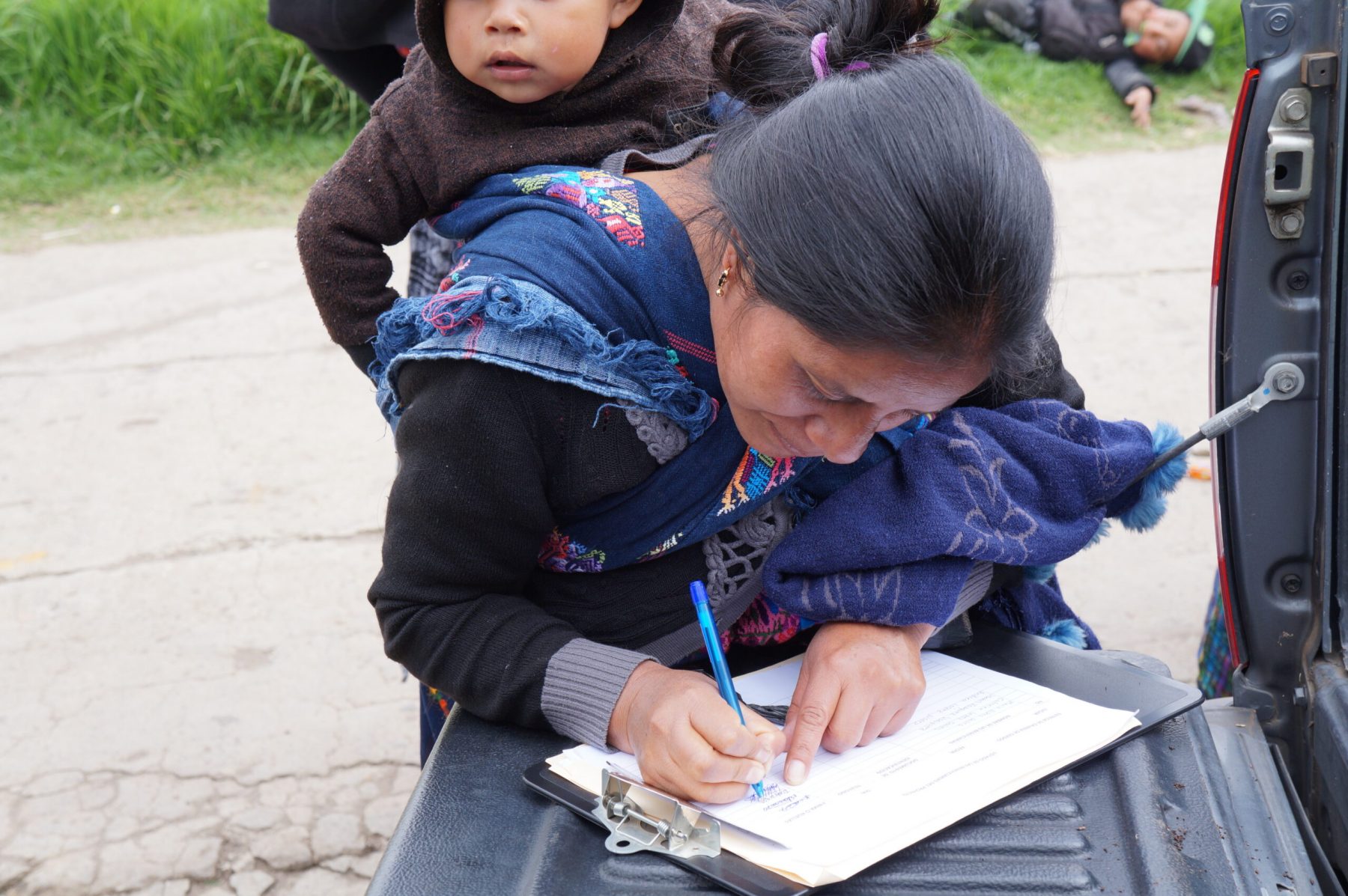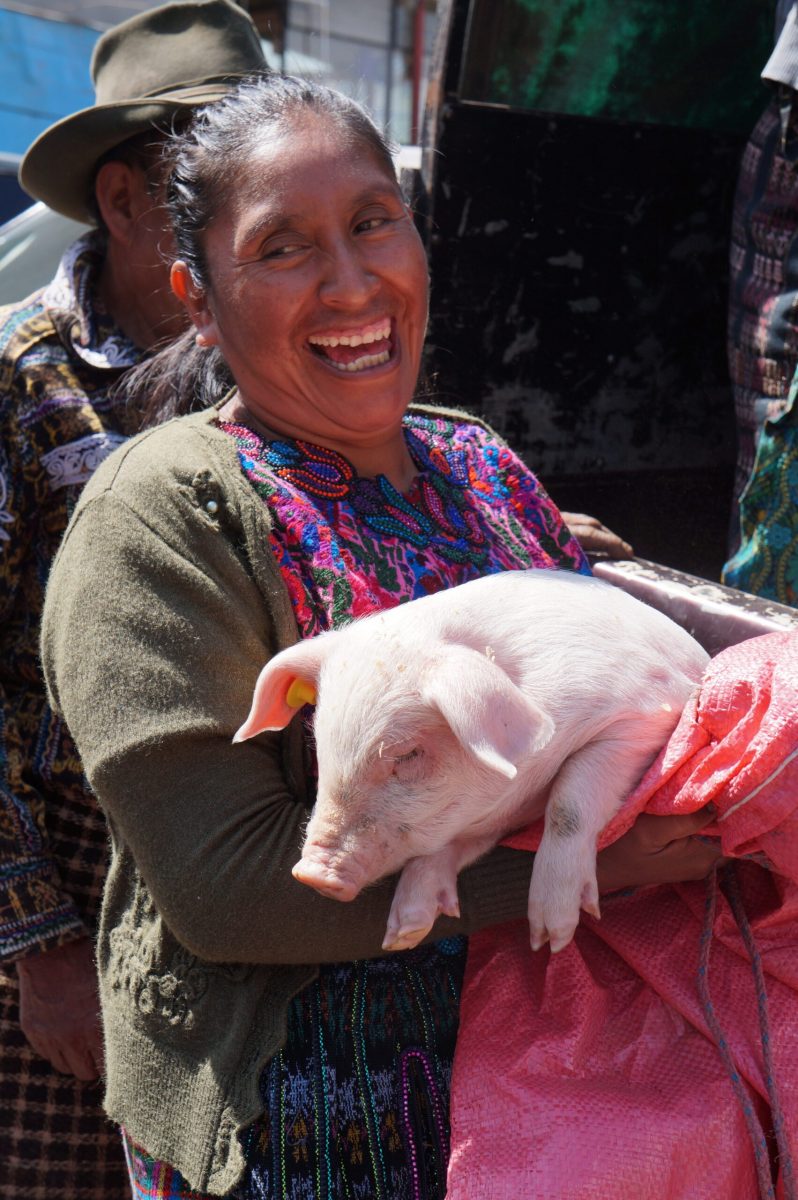In rural Guatemala, communities are working to understand the land they live on to build sustainable futures. Ana Brito and Magdalena Sanchez are two of the 917 families leading this effort. Their dedication to learning and nurturing their surroundings has sparked a transformation, not just for themselves, but for their entire communities.
Ana Brito de Ramírez, a 63-year-old woman from Xonca Village in Nebaj, Quiché, had never set foot in a classroom. She learned everything she knew from her parents while working in the fields, picking coffee and planting potatoes. But over the past three years, Ana’s knowledge has grown like never before, thanks to CWS’ food security program, implemented by its local partner.
Before participating in the program, Ana only knew how to grow beans and corn. Now, she’s learned to grow peppers, chili peppers, tomatoes and veggies like spinach, radish and beets. This has given her amazing advantages. Instead of buying vegetables, she can now harvest them from her own garden. “They gave me seeds and I learned new techniques for planting and caring for the land, without contamination with poisons,” she explained to us and added that she is also excited about the pig she received.
Similarly, Magdalena Sánchez’s journey of growth mirrors that of Ana’s. Due to the threats of war, Magdalena had to flee to the Pulay community in Nebaj when she was a young girl. Now, at the age of 43, she is connecting with the land she grew up on and embracing new possibilities. Through the program, she has received a sheep and pig and is learning new harvesting techniques. Magdalena is now in charge of the greenhouse in her community and told us, “I feel happy.”
With every harvest, Ana and Magdalena are sowing the seeds of progress, transforming their communities and building a path of prosperity and sustainability for generations to come.
We are thankful to the Conference of Evangelical Churches in Guatemala (CIEDEG) and Growing Hope Globally for their leadership of the “Seeds of Hope for Food and Nutritional Security” project.
You can learn more about the work CWS does in Latin America by clicking here.

